Sylvester at ASCO
“Sí, y es algo de lo que debe encargarse hoy, antes de que lo necesite.”
¿Qué es una directiva anticipada?
Si no pudiera comunicar sus decisiones de atención médica, una directiva anticipada las comunicará en su nombre. Son documentos escritos con testigos o declaraciones orales en los que enumera sus decisiones de salud o designa a alguien para que haga saber sus intenciones por usted.
Hay tres tipos de directivas anticipadas:
- Una designación de sustituto de atención médica.
- Un testamento vital.
- Una donación anatómica.
¿Por qué es una buena idea la planificación anticipada de la atención médica?
Las personas quieren asegurarse de que se cumplan sus preferencias de atención crítica o al final de la vida si no pueden hablar por sí mismas. Algunas personas optan por crear una directiva anticipada para:
- rechazar un tratamiento médico agresivo si no hay una posibilidad razonable de que se recupere.
- evitar prolongar o empeorar cualquier molestia o sufrimiento por medio de "máquinas"
- prevenir desacuerdos entre los miembros de la familia sobre sus decisiones de atención médica.
No espere hasta que enfrente una enfermedad grave para obtener una directiva anticipada. Si elige a alguien para que tome decisiones por usted, asegúrese de que conozca sus valores y deseos.
¿Qué dice la Ley estatal y federal?
La Ley de Florida, específicamente el Capítulo 765 de los Estatutos de Florida, alienta a los pacientes a completar instrucciones anticipadas y dice que “todo adulto competente tiene el derecho fundamental de autodeterminación con respecto a las decisiones relacionadas con su propia salud, incluido el derecho a elegir o rechazar tratamientos médicos".
En 1990, el Congreso de los Estados Unidos aprobó la Ley de autodeterminación del paciente. Esta Ley federal requiere que los hospitales informen a los pacientes acerca de las directivas anticipadas.
¿Qué es un sustituto de atención médica?
Los sustitutos proporcionan consentimiento o expresan el derecho del paciente a rechazar el tratamiento. Un sustituto puede ser un miembro de la familia o una amistad.
- Designación de sustituto de atención médica y testamento vital - Inglés
- Designación de sustituto para decisiones médicas y testamento vital - Español
- Deziyasyon Ranplasan Swen Sante ak testaman vivan - Creole
¿Hay restricciones en las decisiones que puede tomar mi sustituto?
Hay ciertos tipos de decisiones que su sustituto puede tomar solo si usted las ha autorizado específicamente. Éstas incluyen:
- aborto,
- esterilización,
- terapia electroconvulsiva,
- psicocirugía,
- ciertos tratamientos experimentales,
- admisión voluntaria a un centro de salud mental.
Además, la Ley le permite imponer las restricciones adicionales que desee a la autoridad de su sustituto. Esto incluye su capacidad para limitar la autoridad de su sustituto para dar consentimiento a detener o retirar procedimientos para prolongar la vida.
¿Qué es un testamento vital?
Un testamento vital es un documento que describe sus preferencias de atención en caso de que se vuelva incapaz de tomar decisiones médicas y padezca una enfermedad en etapa terminal, una enfermedad terminal o se encuentre en un estado vegetativo persistente. Con un testamento vital, usted puede:
- Indicar un sustituto que es una persona para llevar a cabo sus deseos.
- Dejar en claro los tipos de procedimientos para prolongar la vida que desearía o no desearía. Esto incluye las circunstancias en las que elegiría estos procedimientos o los detendría o retiraría.
- Especificar otros asuntos que puedan ser importantes para usted; por ejemplo, el papel que jugarán sus preferencias religiosas en las decisiones al final de la vida.
Un testamento vital escrito debe ser firmado, fechado y atestiguado por dos personas. Por lo menos uno de los testigos debe ser alguien que no sea su cónyuge o pariente. Comunique sus deseos con su familia y su médico. Su testamento vital se convierte en parte de su registro médico permanente. Aunque no necesita un abogado para redactar un testamento vital, es posible que desee informar a su representante legal.
¿Qué es un poder notarial duradero para asuntos médicos?
Algunos pacientes quieren ejecutar documentos legales formales que otorgan autoridad para tomar decisiones a una persona en particular. Esta suele ser la misma persona que le gustaría que fuera su sustituto. Le recomendamos que prepare esto con la ayuda de un asesor legal competente.
¿Qué es una donación anatómica?
Este es un documento que indica su deseo de donar parte o la totalidad de su cuerpo. Esto puede ser una donación de órganos o tejidos a una persona necesitada o una donación de su cuerpo para la capacitación de profesionales de la salud.
Puede indicar su deseo de ser un "donante" en su tarjeta de identificación estatal o licencia de conducir.
¿Qué es una orden de no resucitar (DNRO)?
La DNRO identifica a una persona que no desea ser resucitada de un paro respiratorio o cardíaco. Es un formulario amarillo del Departamento de Salud de Florida.
Si desea tener este formulario, hable con su médico en su próxima visita para obtener más información.
¿Qué sucede si redacto una directiva anticipada pero cambio de opinión?
Tenga la seguridad de que puede cambiar o revocar sus directivas anticipadas en cualquier momento. ¿Cómo? Con solo decirlo. También puede hacerlo por escrito o destruyendo sus documentos existentes. Pero recuerde, estas directivas se crean para aclarar la confusión. Siempre notifique a las personas que tienen copias de que ha cambiado la directiva anticipada. La copia en la historia clínica no puede ser destruida pero sí revocada.
Si desea cancelar una directiva anticipada mientras está hospitalizado, debe notificarlo a:
- Su médico de cabecera.
- Su familia.
- Otros que podrían necesitar saber.
- Cualquier abogado al que haya consultado para redactar su documento.
Puede cambiar su designación como donante en su identificación de Florida al comunicarse con la oficina de licencias de conducir más cercana.
Una directiva anticipada también se revoca si usted crea una nueva o si su médico tratante y otro médico concuerdan que ha conservado su capacidad para tomar decisiones.
Finalmente, si elige a su cónyuge como su sustituto de atención médica y luego se divorcia, él o ella no seguirán siendo su sustituto a menos que usted indique que la designación debe continuar después del divorcio.
¿Qué pasa si completo una directiva anticipada en un estado pero me hospitalizan en otro estado?
La mayoría de los estados, incluido Florida, tienen leyes que respetan las directivas anticipadas de otros estados. Si sus deseos son claros, deben cumplirse en cualquier estado.
De hecho, si no tiene instrucciones anticipadas, puede ser más difícil hacer que sus deseos se cumplan en un lugar desconocido.
¿Dónde puedo obtener una directiva anticipada?
Los formularios están disponibles en la oficina de admisiones, o puede solicitarlos a su médico, personal de enfermería o trabajador social. Puede utilizar nuestros formularios y seleccionar las opciones que desee. Puede cambiar cualquiera de las palabras y agregar más instrucciones. O puede traernos sus propios formularios, y se incluirán en su registro médico.
La Ley de Florida no exige ningún formulario especial de instrucciones anticipadas. Sin embargo, la declaración debe ser presenciada por dos personas. Por lo menos uno de los testigos tiene que ser alguien que no sea su cónyuge o pariente consanguíneo.
Nota: si bien la ley acepta una “declaración oral presenciada” como directiva anticipada, muchos expertos recomiendan un documento escrito y firmado.
¿Cómo puedo saber cuáles procedimientos me gustarían para prolongar mi vida?
Hágase preguntas como las siguientes y luego comuníquelas con su familia, amistades u otras personas.
- ¿Cuáles son mis puntos de vista acerca del fallecimiento?
- ¿Quiero depender totalmente del cuidado que me brinden los demás?
- ¿Existen condiciones que harían que la vida no valiera la pena?
- ¿Se debe utilizar soporte vital artificial para mi atención médica? ¿Por cuánto tiempo?
Siéntase libre de comentar cualquiera de estas preguntas con su médico y otros miembros de su equipo de atención médica.
¿Qué sucede si no tengo una directiva anticipada?
La Ley exige que se designe un apoderado para la atención médica si:
- usted no tiene un testamento vital.
- no ha designado un sustituto de atención médica.
- un médico ha determinado que usted carece de la capacidad para tomar decisiones de atención médica.
El orden de prioridad para este nombramiento es tutor legal, cónyuge, hijo adulto, padre, hermanos adultos, parientes adultos y un amigo cercano.
Las decisiones de tratamiento son complicadas cuando no hay un sustituto y cuando no se puede encontrar un representante. Si no tiene un testamento vital, puede ser difícil conocer sus preferencias para la atención crítica o al final de la vida.
¿Se exige tener una directiva anticipada?
No. La Ley solo requiere que se le proporcione información por escrito sobre su derecho a ejecutar una directiva anticipada si así lo desea.
¿Qué debo hacer con mi directiva anticipada una vez que la tenga?
Una vez que tenga una directiva anticipada, debe informar a su médico, así como a su familia, amistades o abogado para que puedan encontrarla si es necesario. Las copias deben ser de acceso fácil para quienes las necesiten.
Considere llevar una tarjeta pequeña en su billetera o cartera que indique que tiene una directiva anticipada, dónde se encuentra y el nombre y número de teléfono de su sustituto. Su sustituto debe tener una copia de su directiva anticipada. Aprenda más.
Hable con su médico, personal de enfermería o trabajador social acerca de las directivas anticipadas. Si tiene alguna inquietud o queja sobre el incumplimiento de los requisitos de las directivas anticipadas, llame a la Agencia para la Administración del Cuidado de la Salud al 1-888-419-3456, visite FloridaHealthFinder.gov o escriba a:
Consumer Assistance Unity
Agency for Health Care Administration
2727 Mahan Drive • Fort Knox Building, Room 339
Tallahassee, Florida 32303
Obtenga más información a través del Departamento de Asuntos de Personas Mayores de Florida. Visite: ElderAffairs.State.Fl.us.
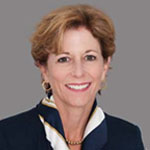
Jayne S. Malfitano
Chair
President and DirectorHarcourt M. and Virginia W. Sylvester Foundation
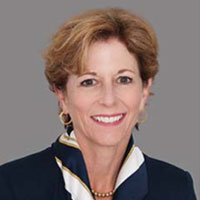
Jayne S. Malfitano, Chair
President and Director
Harcourt M. and Virginia W. Sylvester Foundation
Jayne S. Malfitano’s involvement with Sylvester dates back more than 30 years when her father, Harcourt M. Sylvester, Jr., pledged the first of several multimillion-dollar gifts to build a center in honor of his parents and support cancer programs at the University of Miami. Sylvester Comprehensive Cancer Center opened in 1992. Since then, Ms. Malfitano has remained steadfast in her family’s commitment to making exceptional cancer care available throughout South Florida. She is an active member of the University of Miami Board of Trustees, the UHealth Board of Directors, and serves as Chair of Sylvester Comprehensive Cancer Center’s Board of Governors. Additionally, she is President of the Board of Directors for the Harcourt M. and Virginia W. Sylvester Foundation.
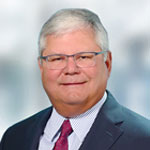
Miguel G. Farra, CPA, J.D.
Vice Chair
South Florida Tax Managing Partner BDO
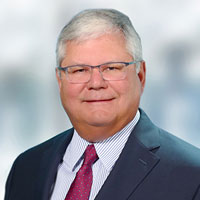
Miguel G. Farra, CPA, J.D., Vice Chair
South Florida Tax Managing Partner BDO
Miguel G. Farra joined the Sylvester Board of Governors in 2010 and served on Sylvester’s 20th anniversary gala committee in 2012. In 2017, Mr. Farra was appointed as a member of the newly created Sylvester Board of Governors and shortly after, in 2018, he became Vice Chair of the Board. Mr. Farra is a tireless champion for Sylvester, dedicating countless hours and his decades of expertise to further the Cancer Center’s mission. Additionally, Mr. Farra is dedicated to supporting our community having held multiple board positions at Camillus House, Miami Dade College Foundation, and United Way of Miami-Dade, among others.
As the South Florida Tax Managing Partner for BDO, Mr. Farra leads a team of highly skilled tax professionals working with clients both domestically and internationally. He brings more than 40 years of experience and is highly respected for his knowledge of corporate reorganizations, international tax and corporate structures, tax planning for real estate developers and investors, and income and estate planning for high-net-worth individuals. In addition, he is highly sought after for his forensic accounting experience, and often serves as an expert witness in tax and commercial litigation cases. He is a qualified expert with the United States Tax Court, Miami-Dade County Circuit Court, and the Broward County Circuit Court.
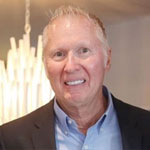
Jon Batchelor
Vice Chair
TrusteeBatchelor Foundation
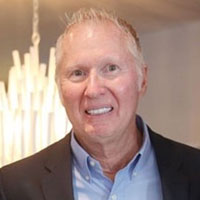
Jon Batchelor
Vice Chair
Trustee
Batchelor Foundation
A Miami native, Mr. Batchelor graduated from Burnside-Ott Flight Training Academy as a commercial pilot for Capitol Airways, and has since logged more than 7,000 flight hours. He was senior vice president of International Air Lease and chair and chief executive officer of Arrow Air, a Miami-based cargo airline.
Mr. Batchelor shares the vision of his late father, George Batchelor, to help children, animals, and the environment in South Florida. He serves as a trustee for the Batchelor Foundation, which supports the Sylvester Comprehensive Cancer Center and the Batchelor Children's Research Institute at the University of Miami Miller School of Medicine, Nicklaus Children's Hospital Miami, Dade Education Fund, Easter Seals, Voices for Children, Women of Tomorrow, Fairchild Tropical Botanic Garden, Miami Metro Zoo, the Museum of Science, and the University of Florida Veterinary School. He has also served on the boards of the United Way of Miami, the Greater Miami Aviation Association, and the International Society of Aircraft Transport Trading.
Mr. Batchelor was elected to the University of Miami Board of Trustees in 2007 and has served as vice chair of the Medical Affairs Committee. He has also served on the Student Affairs Committee and the UHealth Visiting Committee.
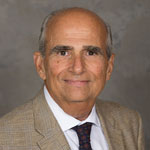
Jose Bared
Former Executive Officer & Board ChairmanFarm Stores Corporation
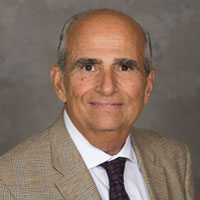
Jose Bared
Former Executive Officer & Board Chairman
Farm Stores Corporation
Jose Bared is a South Florida businessman and entrepreneur who has held business interests in several industries throughout his career. Mr. Bared began his career as an engineer. In 1968, he founded The Bared Company, a mechanical and electrical engineering firm where he served as president for many years. During that time, Mr. Bared also served as a director of Republic Banking Corporation of Florida from 1970 to 1999, where he served on several board committees until the year the bank was sold. In 1992, Mr. Bared led an investor group who purchased the assets of Farm Stores Corporation. As the former executive officer and board chairman of the company, he played an integral role in the franchise’s nationwide success. From 2010 to 2013, Mr. Bared served as a director of Cleantech Biofuels, Inc., a sustainable energy company based in St. Louis, Missouri, that converts waste into renewable energy sources.
Mr. Bared attended Columbia University and graduated from the University of Miami in 1964 with a degree in mechanical engineering. He has been a long-standing member of the University of Miami community. He has been a UM Board of Trustee since 1977 and currently serves as Emeritus Trustee. He is a member of Iron Arrow and Board member of the Amigos of the Cuban Heritage Collection at the University of Miami Libraries. He was also a member of the Citizens Board and served as co-chair for Sylvester’s Momentum campaign.
Mr. Bared is currently the director of The Bared Family Foundation. In addition to his professional successes, and his involvement with UM, he has been dedicated to several civic and charitable causes in South Florida, including Miami Children’s Museum and Camillus House.
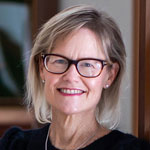
Jennifer Stearns Buttrick
Of CounselStearns Weaver Miller
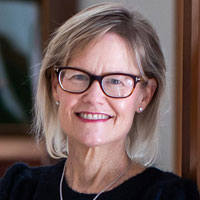
Jennifer Stearns Buttrick
Of Counsel
Stearns Weaver Miller
Jennifer Stearns Buttrick is Of Counsel to the Firm and Director of Pro Bono and Community Service. Prior to taking on this role, she practiced in the Litigation Department, where she handled commercial litigation at the trial and appellate levels in both state and federal courts and administrative actions in the State of Florida.
Mrs. Stearns Buttrick received her undergraduate degree in Spanish and History from Florida State University and spent a semester at the University of Salamanca in Salamanca, Spain, where she developed a proficiency in Spanish.

Adam E. Carlin
Managing DirectorMorgan Stanley Private Wealth Management
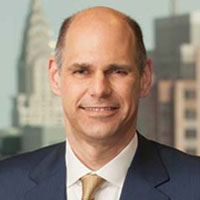
Adam E. Carlin
Managing Director
Morgan Stanley Private Wealth Management
Adam Carlin is a managing director at Morgan Stanley Private Wealth Management. Born in New York, Mr. Carlin spent much of his youth in South Florida before receiving his MBA from the University of Miami.
Mr. Carlin is an active supporter of education, having taught both undergraduate and graduate levels at the University of Miami’s Hebert Business School. In 2006, he co-founded and helped underwrite the MBA Ethics Fellow Internship program at the University, for which he also co-founded the Bermont/Carlin Group Scholars program supporting the University’s most outstanding students majoring in finance.
Mr. Carlin is involved in a wide range of community activities, currently serving as a member of the Board of Trustees of the University of Miami as well as a member of the Board of Governors at Sylvester Comprehensive Cancer Center at the University of Miami Miller School of Medicine, and the University of Miami’s Frost School of Music Dean’s Advisory Board. Mr. Carlin is also a member of the board of New World Symphony, The Buoniconti Fund to Cure Paralysis and The Dolphins Challenge Cancer (DCC) Advisory Board. Mr. Carlin is a member of the George E. Merrick Society at the University of Miami. In recognition of his continued support, Mr. Carlin holds La Table Ronde d’un Million de Dollars at United Way Miami. Mr. Carlin has been named Champion of Community Spirit by Cancer Support Community Greater Miami, and has been recognized as one of Ronald McDonald House’s ‘12 Good Men’. Mr. Carlin was awarded the prestigious Morgan Stanley Community Leadership Award, honoring those employees who have consistently exhibited leadership both within Morgan Stanley as well as within their community. The Coral Gables Community Foundation awarded Mr. Carlin their Arts & Culture Award for his continued commitment to Arts & Culture within the South Florida community. In addition, the Miami Herbert Business School’s Johnson A. Edosomwan Leadership Institute presented Mr. Carlin its Excellence in Leadership Award.
Particularly passionate about children’s health causes, in 2014 Mr. Carlin and his wife Chanin founded the annual Carlin Family Prom at Nicklaus Children’s Hospital, providing children and their parents a safe environment to have fun regardless of their current medical condition.
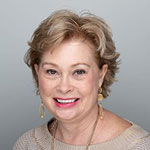
Susan Dinter
ChairThe Pap Corps Champions for Cancer Research Board of Directors
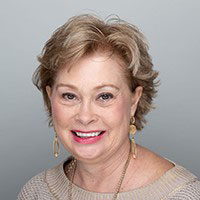
Susan Dinter
Chair
The Pap Corps Champions for Cancer Research Board of Directors
Mrs. Dinter joined the Sylvester Board of Governors in 2020 as chair of The Pap Corps Champions for Cancer Research. Since its founding in 1952, The Pap Corps has donated more than $110 million to Sylvester, including a historic $50 million pledge made in 2016. The Pap Corps’ partnership with Sylvester played an integral role in the Cancer Center’s achievement of NCI-designation in 2019, placing it among the top cancer centers in the nation. With 51 chapters throughout Southeast Florida, Mrs. Dinter is currently tasked with leading an impressive organization of dedicated fundraisers. Mrs. Dinter joined The Pap Corps in 2006 when she moved to Florida. Prior to becoming chair, she dedicated years of service to the organization’s Ponte Vecchio Chapter Board. She also served 2 years as vice president of fundraising, 2 years as executive vice-president, 2 years as president and 4 years as co-president.
Throughout her professional career, Mrs. Dinter worked for 13 years at UPS’ Technology Group as a contract manager negotiating telecommunications, hardware and software contracts with other Fortune 500 companies. Prior to UPS, she worked for more than 17 years in the Defense Industry. Mrs. Dinter believes strongly in what The Pap Corps stands for and is proud to be able to help the organization fulfill its mission of finding a cure for all cancers.
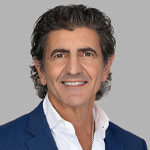
John L. Elwaw, CFA
Managing Director, Wealth Management, Financial Advisor, Senior Portfolio ManagerThe Elwaw/Cavalieri Group at Morgan Stanley
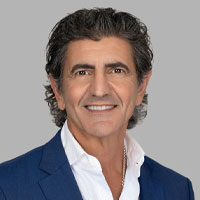
John L. Elwaw, CFA
Managing Director, Wealth Management, Financial Advisor, Senior Portfolio Manager
The Elwaw/Cavalieri Group at Morgan Stanley
The founding partner of the Elwaw/Cavalieri Group, John Elwaw leads a team of experienced professionals who combine their talents to serve a Pan-American clientele of affluent families and individuals. Mr. Elwaw’s primary role on the team is to help clients navigate global financial markets, developing highly customized investment strategies based on their specific needs and objectives. He closely monitors client portfolios, reporting on progress through quarterly review meetings and exceptional ongoing client service.
A Chartered Financial Analyst®, Mr. Elwaw has spent his entire 30-year wealth management career at Morgan Stanley and its predecessor firms. He has been a Chairman’s Club member since 1999 and served on the Wealth Management Financial Advisor Council from 2015 through 2018. Mr. Elwaw was included on Barron’s America’s Top 1,200 Financial Advisors list from 2014 through 2019 and ranked among Forbes magazine’s Best State Advisors for Florida in 2019. He was also recognized on Financial Times list of Top 400 Advisors in 2017 and 2018.
Fluent in English, Spanish, and Arabic, Mr. Elwaw earned a Bachelor of Science in Finance from Northeastern University, and a Master of Science in Finance from Boston College Carroll School of Management. He serves on the Board of Governors of the Sylvester Cancer Comprehensive Center, served as a team captain for the Dolphins Challenge Cancer, and is active in fundraising for St. Jude Children’s Hospital. Mr. Elwaw and his wife, Debbie, live with their three children in Miami, Florida.

Eric Feder
PresidentLENX
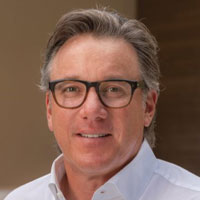
Eric Feder
President
LENX
Eric Feder serves as the Managing General Partner of LENX, where he oversees Lennar’s innovation and venture capital investing. Prior to his current role, he was vice chairman at Rialto Capital from 2008 to 2018, where he provided oversight of Rialto’s non-performing loan acquisitions and direct real estate investments, exceeding $6 billion.
Mr. Feder has been instrumental in helping identify, structure, and execute investments for Lennar that have re-defined the landscape of real estate technology, including States Title, Hippo Insurance, Blend, Opendoor, and Divvy Homes.
Mr. Feder serves as a board director at States Title, as well as Hippo Insurance. He is a past chairman of the Dolphins Challenge Cancer, the NFL’s number one team fundraising event, and is a current member of the Board of Governors of Sylvester Comprehensive Cancer Center at the University of Miami Miller School of Medicine.
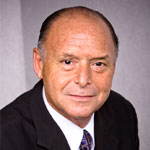
Paul Feinsilver
Chairman of the BoardFMSbonds, Inc.
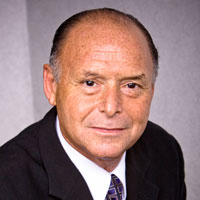
Paul Feinsilver
Chairman of the Board
FMSbonds, Inc.
Paul Feinsilver is chairman of the board and co-founder of FMSbonds, Inc., a municipal bond firm that provides individual investors with exceptional value and insight in the tax-free and taxable municipal bond markets. Founded in 1978, the firm’s five offices serve clients nationwide. Its nationally acclaimed website, FMSbonds.com, was the first to offer municipal bond investors direct execution over the internet.
Mr. Feinsilver and his family have supported several initiatives at Sylvester Comprehensive Cancer Center throughout the years, including pediatric cancer research, recruitment of top physician and scientists, the Dolphins Challenge Cancer and Cards for a Cure. Originally founded by his late wife, Denny, Cards for a Cure is an online fundraising program that is carried on today by their daughter, Corey.
Apart from his professional obligations and advocacy for Sylvester, Mr. Feinsilver is also engaged in numerous civic and philanthropic organizations. Other commitments include serving on the board of directors of the Greater Miami Jewish Federation; being a founder of Miami Jewish Home and Hospital; member, American Israel Public Affairs Committee; a driving force in the growth of Temple Or-Hadash in Haifa because of his interest in the progressive movement in Israel; Boys Town of Jerusalem; active member of the Miami Beach Jewish Community Center; member, the Florida Congressional Committee; member, the University of Maryland Alumni Association; and member of the Municipal Bond Club of Florida, to name a few.
Mr. Feinsilver is a native of Maplewood, N.J. and earned his bachelor’s degree in Business Administration from the University of Maryland.
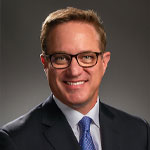
Tom Garfinkel
Vice Chairman, President and Chief Executive OfficerMiami Dolphins
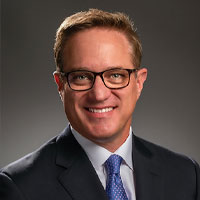
Tom Garfinkel
Vice Chairman, President and Chief Executive Officer
Miami Dolphins
Tom Garfinkel serves as Vice Chairman, President and Chief Executive Officer of the Miami Dolphins and Hard Rock Stadium and Managing Partner of the Formula 1® Crypto.com Miami Grand Prix. Since his hire in 2013, Garfinkel has led the business success of the Dolphins and Hard Rock Stadium, highlighted by:
- The initiation, creation and execution of a plan to privately fund a more than $550 million renovation of a 27-year-old stadium.
- The extension and design of a multi-year partnership with Baptist Health to construct the $135M state-of-the-art Baptist Health Training Complex in Miami Gardens, which opened in July 2021.
- The sale of more than $1 billion in future contractually obligated suite and sponsorship income, including the in-house sale of naming rights to "Hard Rock Stadium."
- Negotiating and securing a 10-year agreement for the Formula 1® Crypto.com Miami Grand Prix to be held at the Hard Rock Stadium campus. Garfinkel led the design and construction of the race track and surrounding hospitality, creating innovative new fan experiences at a race venue. The event was named the "Best New Event" of 2022 by the Sports Business Journal and has produced a combined economic impact of nearly $800 million to the local South Florida community in its first two years.
- The winning bid for the 2020 Super Bowl, 2021 and 2026 College Football Playoff National Championship games at Hard Rock Stadium, and the 2026 FIFA World Cup.
- The highest grossing soccer event in U.S. history in July of 2017 (El Clasico Miami: Real Madrid vs. Barcelona).
- The continuation and growth of the Dolphins Challenge Cancer, which has raised more than $64 million to date in donations of its $75 million commitment to Sylvester Comprehensive Cancer Center at the University of Miami, the largest known philanthropic pledge in the NFL.
- The creation of a 30 year partnership with Endeavor to bring the Miami Open tennis tournament to Hard Rock Stadium. The 2019 debut event set record attendance numbers and increased total revenue by nearly 25%. The event has continued to grow and hit record attendance again in 2023.
- Initiating the elimination of 99.4% of fan facing single-use plastics in Hard Rock Stadium's food and beverage operation.
- The creation of the first socially-distanced stadium plan during the COVID-19 pandemic, a safe environment where 13,000 people could attend games and be socially distant and socially present at the same time.
- The organization being honored in February 2020 by the Fritz Pollard Alliance with the Paul J. Tagliabue Award for their leadership in advancing diversity.
- The team receiving the Front Office Sports Best Employers in Sports Award in 2019 and 2020.
- The stadium being named the Venue of the Year by the Sports Business Awards in 2023 for its diverse calendar of global sports and entertainment events.
- His operating experience includes serving as president and chief executive officer of the San Diego Padres, chief operating officer of the Arizona Diamondbacks and executive vice president of Chip Ganassi Racing's NASCAR, IndyCar and Grand-Am racing teams. Prior to working in sports, Garfinkel held different leadership roles in sales, marketing and branding with Miller Brewing Company and Texaco, Inc.
Garfinkel serves on the board of Sylvester Comprehensive Cancer Center at the University of Miami, the National Football Foundation, and the Sports Management Advisory Board and Ross School of Business Advisory Board at the University of Michigan.
Garfinkel graduated with a bachelor's degree from the University of Colorado, Boulder, and earned his MBA at the University of Michigan. In October 2020, Garfinkel earned the George Norlin Award, which recognizes outstanding CU Boulder alumni who have demonstrated a commitment to excellence in their chosen field of endeavor and a devotion to the betterment of society and their community. Garfinkel was among Sports Business Journal's Leaders in Diversity and Inclusive Hiring honorees in March 2021.
Garfinkel and his wife, Allison, live in Coral Gables with their three sons.
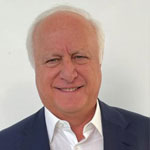
Saul Gilinski
Chairman & CEOLyfe Group Co.
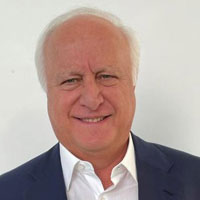
Saul Gilinski
Chairman & CEO
Lyfe Group Co.
CEO, chairman and philanthropist Saul Gilinski is the founder of Lyfe Group Co., a conglomerate within the pharmaceutical, nutraceutical, life sciences and real estate industries.
Lyfe Group is a renowned world leader of premium two-piece empty capsules. Other ventures include the ownership and operation of gelatin manufacturing plants in various countries as well as decaffeinated and instant coffee plants in Latin America. Lyfe Group’s corporate headquarters are in Dania Beach, Florida with offices and production facilities in North and South America, Europe, and Asia.
Saul Gilinski has a 40+ year successful track record as a leader in business development, healthcare innovation and sciences. He is a graduate of Babson College and the Harvard Business School's Owner/President Management Program.
He is also a director and owner of MSG Dania Beach LLC and is a commercial property developer in South Florida with a real estate portfolio of over 3 million square feet. The company focuses on acquisitions, construction and ownership of last-mile industrial distribution assets, asset management and disposition of real estate across all real estate sectors.
As a philanthropist, Mr. Gilinski supports therapeutics research and development aimed at finding cures for severe pediatric encephalopathies as well as providing housing and clinical care for children suffering from cancer in foster homes. As a leader in the community, Mr. Gilinski believes in the advancement of minorities and the disadvantaged and has developed a fund to provide needs-based scholarships to young graduates from the Caribbean and South Florida regions. Mr. Gilinski is a proud donor to the Sylvester Comprehensive Cancer Center at the University of Miami Miller School of Medicine in support of experimental therapeutics and stem cell transplantation research.
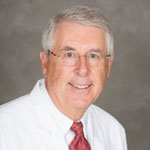
W. Jarrard Goodwin, M.D.
Emeritus ProfessorDepartment of Otolaryngology
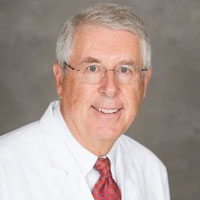
W. Jarrard Goodwin, M.D.
Emeritus Professor
Department of Otolaryngology
Dr. Goodwin is emeritus professor in the Department of Otolaryngology. He recently retired as professor and associate chief medical officer of University of Miami Hospital and Clinics. He served as director of Sylvester Comprehensive Cancer Center from 1996-2010, during which time he oversaw the center’s integrated clinical, research, and education programs in cancer. Additionally, he served as a professor in the Miller School of Medicine’s Department of Otolaryngology, which he chaired from 1989-2000, and an active, board-certified head and neck surgeon.
During Dr. Goodwin’s first tenure (1980-1985) at the University of Miami, he served as an assistant and then associate professor in the Department of Otolaryngology. He returned to UM as a full professor in 1989 after four years at Yale University School of Medicine. He completed his head and neck surgery fellowship at M.D. Anderson Hospital and Tumor Institute in Houston, Texas in 1980; general surgery and otolaryngology residency training at Jackson Memorial Hospital in 1977; and a surgical internship at Case Western Reserve University Affiliated Hospitals in Cleveland, Ohio in 1973. Dr. Goodwin received his bachelor’s degree from Rensselaer Polytech Institute in Troy, New York, and medical degree from Albany Medical College, Union University, in Albany, New York.

Elizabeth Jenkins
Chief Operating Officer and CoachCrossFit VICE
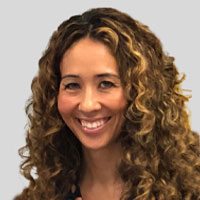
Elizabeth Jenkins
Chief Operating Officer and Coach
CrossFit VICE
Elizabeth Jenkins, wife of late Miami Dolphins SVP, Jason Jenkins, is currently the Chief Operating Officer and Coach at CrossFit VICE in Coral Springs - aligning her passion for health and fitness with her desire to help people achieve the best versions of themselves.
Jenkins is also the Board Chair, for the second year, for the Dolphins Challenge Cancer, the largest NFL fundraiser benefiting cancer research and initiative for the University of Miami Sylvester Comprehensive Cancer Center. In 2023, it raised a record-breaking amount of more than $10+million, and has raised more than $64 million for local cancer research since 2010.
Jenkins, a former 15-year sports and entertainment marketing executive, started her career in the marketing and branding department at the National Football League from 2002-2008 working on large-scale events like Super Bowl, Pro Bowl, Kickoff and NFL International Series. Post her stint at the NFL, Jenkins served as Director of Brand Activation and Director of Entertainment Marketing at the BB&T Center (currently FLA Live Arena) and Vice President of Marketing and Branding for the NHL Florida Panthers from 2010-2015. She continued her entertainment marketing consultation work for Cirque du Soleil Entertainment Group from 2017-2020.
As a military brat, Jenkins lived abroad most of her formative years in South Korea. She earned her Bachelors of Science in Business and Leadership Studies in 2002 from the University of Colorado. She resides in Parkland with her three children - Liya, Aiden, and Sloane.
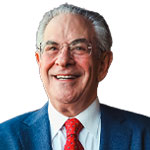
Alan Kluger
Managing PartnerKluger Kaplan Silverman Katzen & Levine PL
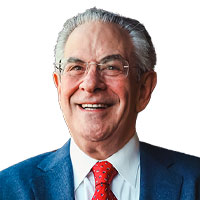
Alan Kluger
Managing Partner
Kluger Kaplan Silverman Katzen & Levine PL
Founding Member Alan Kluger is a powerhouse trial attorney who advocates for his clients at all stages of the litigation process. Mr. Kluger is a veteran courtroom lawyer who represents some of the nation's largest businesses and most prominent individuals in their most challenging and complex cases. He acts as a trusted advisor to his clients. Many of his clients come to him after first facing him as an adversary and determining that Mr. Kluger's tough, no-nonsense litigation tactics, and creative, out-of-the-box thinking is what they need for their own disputes. Mr. Kluger's practice is guided by three key principles: thorough preparation, thoughtful strategy and mastery of the facts and the law. These are the reasons he consistently earns top rankings by peer-reviewed publications such as The Best Lawyers in America, Chambers USA and Florida Super Lawyers.
As devoted as he is to his clients, Mr. Kluger is equally passionate about his community. He and his wife, Retired Judge Amy Dean, created a private charitable foundation, the Dean-Kluger Charitable Foundation, which supports various local and national charitable organizations.
A devoted patron of the arts, Mr. Kluger and his wife own an encyclopedic collection of Contemporary Latin American and emerging mid-career African American art.
Mr. Kluger is a member of the Board of Governors of the Sylvester Comprehensive Cancer Center at the University of Miami Leonard M. Miller School of Medicine; a board member of the Greater Miami Jewish Federation, a past president of Florida Hillel Council, and a former member of the Miami-Dade County Community Relations Board.

Kinga Lampert
Co-TrusteeLampert Foundation
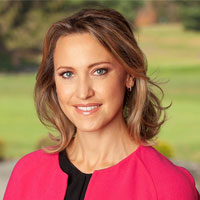
Kinga Lampert
Co-Trustee
Lampert Foundation
Kinga was born in Warsaw, Poland and grew up in Paris where she graduated from Universite Paris X Nanterre with a Masters in Business Law. After moving to the United States, she was an attorney in the corporate law department of the law firm Dechert Price and Rhoads in New York, and later became in-house counsel at Société Générale Corporate and Investment Bank.
Ms. Lampert is deeply committed to women’s health issues and cancer research - since 2012 she has served as co-chair of the board of the Breast Cancer Research Foundation (BCRF), the largest funder of breast cancer research worldwide.
Ms. Lampert sits on the board of the American Friends of the Paris Opera and Ballet, whose mission is to foster artistic cooperation between the Paris Opera and the creative community in the United States. She has served on the board of KIPP, a network of 250 non-profit public charter schools in 20 states, and remains committed to the organization as it has recently expanded to Miami.
Since moving to Miami in 2012 with her husband and two children, Ms. Lampert has joined the Board of Governors of Sylvester Cancer Center and has been an active supporter of Miami City Ballet, the Institute of Contemporary Art, Breakthrough Miami, Big Brothers Big Sisters and Best Buddies.
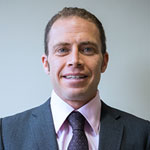
James Tucker LeFrak
Vice-ChairmanLeFrak
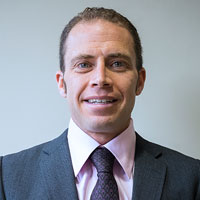
James Tucker LeFrak
Vice-Chairman
LeFrak
Jamie LeFrak is a vice-chairman of LeFrak, a preeminent, family-owned property company committed to community development and long-term ownership. In his role, Mr. LeFrak shares responsibility for the ongoing development and management of the firm’s extensive real estate portfolio, as well as managing its various other lines of business and over 1,000 employees. Beyond property, LeFrak investments are geographically diverse and span many business sectors, with significant investments in securities, private businesses and energy.
Over the past 20 years, Mr. LeFrak has overseen the creation, occasional acquisition and long-term operation of thousands of housing units, millions of square feet of class A office space, several hotels and a variety of retail and other real estate assets located primarily in Newport (Jersey City), New York, Los Angeles and Seattle. Prior to joining his family’s eponymous business, Mr. LeFrak served as project manager of “Hollywood & Highland,” a real estate development of TrizecHahn Development Corporation in Los Angeles.
Mr. LeFrak currently serves as the citizens’ representative of the North Jersey Transportation Planning Authority. He previously served on the board of Liberty Healthcare System (Jersey City Medical Center). Raised in New York City, Mr. LeFrak and his family belong to some of the city’s most prestigious institutions.
Mr. LeFrak holds a bachelor’s from Princeton University and later earned a master’s degree in civil engineering from M.I.T. He and his wife, Caroline, maintain residences in Miami Beach and Southampton, New York, and have four lovely children.
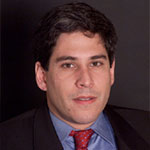
Marc Nachmann
Goldman SachsGlobal Markets Division
New York
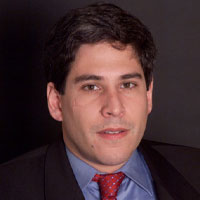
Marc Nachmann
Goldman Sachs
Global Markets Division
New York
Marc Nachmann is global co-head of the Securities Division at Goldman Sachs. He is a member of the Firmwide Management Committee, Firmwide Risk Committee, Firmwide Enterprise Risk Committee and European Management Committee.
Prior to assuming his current role, Mr. Nachmann was co-head of the Investment Banking Division (IBD). Before that, he was head of the Global Financing Group in IBD and head of Latin America for the firm. Earlier in his career, Mr. Nachmann was co-head of the Global Natural Resources business. He joined Goldman Sachs in 1994 in the Investment Banking Division and was named managing director in 2002 and partner in 2004.
Mr. Nachmann is a member of the Board of Trustees of Wesleyan University. He earned a Bachelor of Arts in Physics, Economics and Mathematics from Wesleyan University in 1991, and a Doctor of Philosophy in Business Economics from Harvard Business School in 1994.
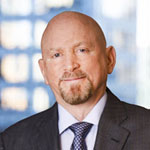
James “Jim” Nelson
Chief Executive OfficerGlobal Net Lease
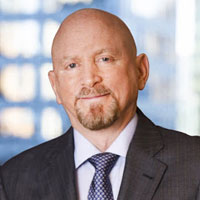
James “Jim” Nelson
Chief Executive Officer
Global Net Lease
Mr. Nelson currently serves as CEO and director of Global Net Lease (GNL). Global Net Lease, Inc. (NYSE: GNL) is a publicly traded real estate investment trust listed on the NYSE focused on acquiring a diversified global portfolio of commercial properties, with an emphasis on sale-leaseback transactions involving single tenant, mission critical income producing net-leased assets across the United States, Western and Northern Europe.
Mr. Nelson joined GNL in 2017 with a long track record of success as a leader with experience in real estate, international business and capital markets. He previously served as CEO of a number of public and private companies, including Orbitex Management, a $17 billion (assets under management and administration) financial services company. He also served as chairman and CEO of Eaglescliff Corporation, a specialty investment banking, consulting and wealth management company from 1986 until 2009. As a director of Icahn Enterprises L.P., Mr. Nelson provided board oversight in the acquisition and divestiture of over $1 billion in real estate assets. Mr. Nelson was a director and member of the compensation, governance, and strategic alternatives committees of Voltari Corporation from 2011 to 2015 and served as chairman from 2012 to 2015. Mr. Nelson’s tenure as a board member for numerous public companies includes international business and capital markets experience with the various companies completing over $12 billion in financing and over $8 billion in strategic transactions.
Mr. Nelson currently serves as an independent director and member of the audit and finance committees for Xerox and as an independent director and chairman of the audit committee for Roman DBDR Tech Acquisition Corp., a special purpose acquisition company, or SPAC, formed for the purpose of effecting a business combination with one or more businesses with a focus on companies in the technology, media and telecom (''TMT'') industries. He also served as lead director and audit committee member of Herbalife Nutrition Ltd. (board member from 2014 -January 2021), and as a director and member of the audit committee of Caesars Entertainment Corporation, a casino-entertainment company, from March 2019 to October 2020.
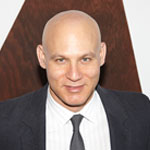
Craig Robins
Chief Executive Officer and PresidentDacra
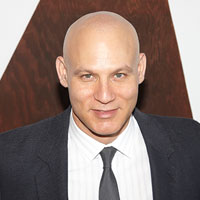
Craig Robins
Chief Executive Officer and President
Dacra
Craig Robins is an entrepreneur, real estate developer, and art collector. As the CEO and President of Dacra, the real estate development company he founded in 1987, Mr. Robins focuses on developing creative communities that integrate art, design, and architecture to accelerate asset value creation and enrich urban life.
In the 1980s, Mr. Robins played an integral role in the revitalization of South Beach through Dacra’s restoration of Art Deco landmarks, and the creation of new commercial and cultural opportunities. Mr. Robins realized that creative programming would foster a sense of community, and his projects were defined in part by performances, public art, and events. In parallel, Dacra developed mixed-use projects on Lincoln Road and Espanola Way. Later, Dacra acquired 8.5 acres on Allison Island and created a New Urbanist residential community -- AQUA.
Mr. Robins began acquiring property in the Miami Design District twenty years ago, and in 2000 set about transforming the neighborhood into one of the most important global centers for design, fashion, food, and art. In 2010, Dacra entered into a partnership with L Real Estate (now L Catterton) to further develop the district by forming Miami Design District Associates (MDDA). In 2014, a minority percentage of MDDA was sold to a joint venture between real estate companies GGP and AAC.
In 2005, the neighborhood’s renewal inspired the creation of Design Miami and subsequently Design Miami/ Basel, design fairs that have become the premier global forum for collectible design. Mr. Robins is the Chairman of the show, which he owns with MCH Swiss Exhibition, the producers of Art Basel.
An avid collector and supporter of the arts and architecture, Mr. Robins is a member of the Board of Trustees of the Perez Art Museum Miami; an active supporter of ICA Miami; and a member of the University of Miami School of Architecture Master in Real Estate Development and Urbanism Advisory Board. Mr. Robins’ commitment to design earned him the 2006 Design Patron award, which recognizes an individual’s patronage of design within the business and civic sectors from the Smithsonian’s Cooper-Hewitt National Design Museum. He is also on the Sylvester Comprehensive Cancer Center’s Board of Governors.
Born in Miami Beach, Mr. Robins attended the University of Barcelona, received his Bachelor of Arts from the University of Michigan, and graduated from the University of Miami School of Law. He and his wife Jackie Soffer are the parents of six children.
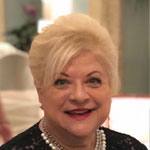
Joan Scheiner
Community Organization and Development Volunteer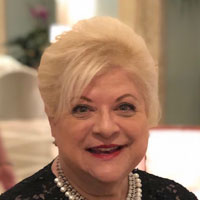
Joan Scheiner
Community Organization and Development Volunteer
Joan Scheiner is a life-long community advocate who has successfully led many not-for-profit organizations as both a professional and a volunteer. Mrs. Scheiner began her career at the age of 22 as the director of Women’s Division and Overseas Programs as well as the Young Adult Division of the Greater Miami Jewish Federation. She has led seminars on fund raising, leadership development and community organization for fund raising professionals and volunteers throughout Miami and the United States. She mentors cancer patients and their caregivers as well as being a mentor for Women of Tomorrow.
In Miami Dade she has served as development chair of Beth Am Day School. She has also served as vice chair of the board of Ransom Everglades School. She was a member of the major gifts committee of Nicklaus Children’s Hospital and United Way. Mrs. Scheiner is the immediate past chairman of Sylvester Comprehensive Cancer Center’s Board of Governors, 2007-2015. Mrs. Scheiner was successfully treated at Sylvester for a life-threatening cancer, now more than 20 years ago, which led to her commitment to the center and its outstanding physicians, scientists and leaders.
Mrs. Scheiner is the wife of J. David Scheiner and the mother of Brett and Michael, Brett’s wife Jaimie and Michael’s wife Katie, and grandmother of Gibson, Sadie, Ava and Max.

Lally Graham Weymouth
Senior Associate EditorThe Washington Post
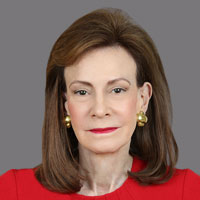
Lally Graham Weymouth
Senior Associate Editor
The Washington Post
Lally Graham Weymouth is the senior associate editor of The Washington Post. She is well known for having secured hard-to-get exclusive interviews with heads of state for many years. Among her most famous interviews are her 1984 interview with Saddam Hussein, which was the first interview he granted an American journalist; her 2002 interview with Colonel Muammar Gaddafi in his tent in the Libyan Desert; and her interview in 2007 with Pakistan’s Prime Minister Benazir Bhutto two weeks before she was assassinated.
Ms. Weymouth has spent significant time in the Middle East, conducting exclusive interviews with Egyptian Presidents Abdel Fatah al-Sissi and Hosni Mubarak; Jordan’s King Abdullah II and his father King Hussein; and Syria’s President Hafez al-Assad and President Bashar al-Assad. She has interviewed every Israeli Prime Minister since 1981, including Shimon Peres, Yitzhak Rabin, and Benjamin Netanyahu.
Ms. Weymouth graduated from Radcliffe College with honors. She edited and compiled Thomas Jefferson: The Man, His World, His Influence, a collection which includes contributions from leading Jefferson scholars published in 1973. She is also the author of America in 1876: The Way We Were, published by Random House in 1976. Shortly thereafter, she worked as a freelance journalist and contributing editor for such publications as New York magazine, The New York Times Magazine, Esquire, Atlantic Monthly, and Parade.
In 2015, Ms. Weymouth received the May Chidiac Foundation’s Antoine Choueiri Special Tribute for Lifetime Achievement. In 2016, the Citizens Union of the City of New York honored her with the Civil Society Builder Award. She currently serves as a member of the Council on Foreign Relations, the Partnership for New York City, the Economic Club of New York, and is a member of the Board of the Asia Society Policy Institute’s Council.
“Sí, y es algo de lo que debe encargarse hoy, antes de que lo necesite.”
¿Qué es una directiva anticipada?
Si no pudiera comunicar sus decisiones de atención médica, una directiva anticipada las comunicará en su nombre. Son documentos escritos con testigos o declaraciones orales en los que enumera sus decisiones de salud o designa a alguien para que haga saber sus intenciones por usted.
Hay tres tipos de directivas anticipadas:
- Una designación de sustituto de atención médica.
- Un testamento vital.
- Una donación anatómica.
¿Por qué es una buena idea la planificación anticipada de la atención médica?
Las personas quieren asegurarse de que se cumplan sus preferencias de atención crítica o al final de la vida si no pueden hablar por sí mismas. Algunas personas optan por crear una directiva anticipada para:
- rechazar un tratamiento médico agresivo si no hay una posibilidad razonable de que se recupere.
- evitar prolongar o empeorar cualquier molestia o sufrimiento por medio de "máquinas"
- prevenir desacuerdos entre los miembros de la familia sobre sus decisiones de atención médica.
No espere hasta que enfrente una enfermedad grave para obtener una directiva anticipada. Si elige a alguien para que tome decisiones por usted, asegúrese de que conozca sus valores y deseos.
¿Qué dice la Ley estatal y federal?
La Ley de Florida, específicamente el Capítulo 765 de los Estatutos de Florida, alienta a los pacientes a completar instrucciones anticipadas y dice que “todo adulto competente tiene el derecho fundamental de autodeterminación con respecto a las decisiones relacionadas con su propia salud, incluido el derecho a elegir o rechazar tratamientos médicos".
En 1990, el Congreso de los Estados Unidos aprobó la Ley de autodeterminación del paciente. Esta Ley federal requiere que los hospitales informen a los pacientes acerca de las directivas anticipadas.
¿Qué es un sustituto de atención médica?
Los sustitutos proporcionan consentimiento o expresan el derecho del paciente a rechazar el tratamiento. Un sustituto puede ser un miembro de la familia o una amistad.
- Designación de sustituto de atención médica y testamento vital - Inglés
- Designación de sustituto para decisiones médicas y testamento vital - Español
- Deziyasyon Ranplasan Swen Sante ak testaman vivan - Creole
¿Hay restricciones en las decisiones que puede tomar mi sustituto?
Hay ciertos tipos de decisiones que su sustituto puede tomar solo si usted las ha autorizado específicamente. Éstas incluyen:
- aborto,
- esterilización,
- terapia electroconvulsiva,
- psicocirugía,
- ciertos tratamientos experimentales,
- admisión voluntaria a un centro de salud mental.
Además, la Ley le permite imponer las restricciones adicionales que desee a la autoridad de su sustituto. Esto incluye su capacidad para limitar la autoridad de su sustituto para dar consentimiento a detener o retirar procedimientos para prolongar la vida.
¿Qué es un testamento vital?
Un testamento vital es un documento que describe sus preferencias de atención en caso de que se vuelva incapaz de tomar decisiones médicas y padezca una enfermedad en etapa terminal, una enfermedad terminal o se encuentre en un estado vegetativo persistente. Con un testamento vital, usted puede:
- Indicar un sustituto que es una persona para llevar a cabo sus deseos.
- Dejar en claro los tipos de procedimientos para prolongar la vida que desearía o no desearía. Esto incluye las circunstancias en las que elegiría estos procedimientos o los detendría o retiraría.
- Especificar otros asuntos que puedan ser importantes para usted; por ejemplo, el papel que jugarán sus preferencias religiosas en las decisiones al final de la vida.
Un testamento vital escrito debe ser firmado, fechado y atestiguado por dos personas. Por lo menos uno de los testigos debe ser alguien que no sea su cónyuge o pariente. Comunique sus deseos con su familia y su médico. Su testamento vital se convierte en parte de su registro médico permanente. Aunque no necesita un abogado para redactar un testamento vital, es posible que desee informar a su representante legal.
¿Qué es un poder notarial duradero para asuntos médicos?
Algunos pacientes quieren ejecutar documentos legales formales que otorgan autoridad para tomar decisiones a una persona en particular. Esta suele ser la misma persona que le gustaría que fuera su sustituto. Le recomendamos que prepare esto con la ayuda de un asesor legal competente.
¿Qué es una donación anatómica?
Este es un documento que indica su deseo de donar parte o la totalidad de su cuerpo. Esto puede ser una donación de órganos o tejidos a una persona necesitada o una donación de su cuerpo para la capacitación de profesionales de la salud.
Puede indicar su deseo de ser un "donante" en su tarjeta de identificación estatal o licencia de conducir.
¿Qué es una orden de no resucitar (DNRO)?
La DNRO identifica a una persona que no desea ser resucitada de un paro respiratorio o cardíaco. Es un formulario amarillo del Departamento de Salud de Florida.
Si desea tener este formulario, hable con su médico en su próxima visita para obtener más información.
¿Qué sucede si redacto una directiva anticipada pero cambio de opinión?
Tenga la seguridad de que puede cambiar o revocar sus directivas anticipadas en cualquier momento. ¿Cómo? Con solo decirlo. También puede hacerlo por escrito o destruyendo sus documentos existentes. Pero recuerde, estas directivas se crean para aclarar la confusión. Siempre notifique a las personas que tienen copias de que ha cambiado la directiva anticipada. La copia en la historia clínica no puede ser destruida pero sí revocada.
Si desea cancelar una directiva anticipada mientras está hospitalizado, debe notificarlo a:
- Su médico de cabecera.
- Su familia.
- Otros que podrían necesitar saber.
- Cualquier abogado al que haya consultado para redactar su documento.
Puede cambiar su designación como donante en su identificación de Florida al comunicarse con la oficina de licencias de conducir más cercana.
Una directiva anticipada también se revoca si usted crea una nueva o si su médico tratante y otro médico concuerdan que ha conservado su capacidad para tomar decisiones.
Finalmente, si elige a su cónyuge como su sustituto de atención médica y luego se divorcia, él o ella no seguirán siendo su sustituto a menos que usted indique que la designación debe continuar después del divorcio.
¿Qué pasa si completo una directiva anticipada en un estado pero me hospitalizan en otro estado?
La mayoría de los estados, incluido Florida, tienen leyes que respetan las directivas anticipadas de otros estados. Si sus deseos son claros, deben cumplirse en cualquier estado.
De hecho, si no tiene instrucciones anticipadas, puede ser más difícil hacer que sus deseos se cumplan en un lugar desconocido.
¿Dónde puedo obtener una directiva anticipada?
Los formularios están disponibles en la oficina de admisiones, o puede solicitarlos a su médico, personal de enfermería o trabajador social. Puede utilizar nuestros formularios y seleccionar las opciones que desee. Puede cambiar cualquiera de las palabras y agregar más instrucciones. O puede traernos sus propios formularios, y se incluirán en su registro médico.
La Ley de Florida no exige ningún formulario especial de instrucciones anticipadas. Sin embargo, la declaración debe ser presenciada por dos personas. Por lo menos uno de los testigos tiene que ser alguien que no sea su cónyuge o pariente consanguíneo.
Nota: si bien la ley acepta una “declaración oral presenciada” como directiva anticipada, muchos expertos recomiendan un documento escrito y firmado.
¿Cómo puedo saber cuáles procedimientos me gustarían para prolongar mi vida?
Hágase preguntas como las siguientes y luego comuníquelas con su familia, amistades u otras personas.
- ¿Cuáles son mis puntos de vista acerca del fallecimiento?
- ¿Quiero depender totalmente del cuidado que me brinden los demás?
- ¿Existen condiciones que harían que la vida no valiera la pena?
- ¿Se debe utilizar soporte vital artificial para mi atención médica? ¿Por cuánto tiempo?
Siéntase libre de comentar cualquiera de estas preguntas con su médico y otros miembros de su equipo de atención médica.
¿Qué sucede si no tengo una directiva anticipada?
La Ley exige que se designe un apoderado para la atención médica si:
- usted no tiene un testamento vital.
- no ha designado un sustituto de atención médica.
- un médico ha determinado que usted carece de la capacidad para tomar decisiones de atención médica.
El orden de prioridad para este nombramiento es tutor legal, cónyuge, hijo adulto, padre, hermanos adultos, parientes adultos y un amigo cercano.
Las decisiones de tratamiento son complicadas cuando no hay un sustituto y cuando no se puede encontrar un representante. Si no tiene un testamento vital, puede ser difícil conocer sus preferencias para la atención crítica o al final de la vida.
¿Se exige tener una directiva anticipada?
No. La Ley solo requiere que se le proporcione información por escrito sobre su derecho a ejecutar una directiva anticipada si así lo desea.
¿Qué debo hacer con mi directiva anticipada una vez que la tenga?
Una vez que tenga una directiva anticipada, debe informar a su médico, así como a su familia, amistades o abogado para que puedan encontrarla si es necesario. Las copias deben ser de acceso fácil para quienes las necesiten.
Considere llevar una tarjeta pequeña en su billetera o cartera que indique que tiene una directiva anticipada, dónde se encuentra y el nombre y número de teléfono de su sustituto. Su sustituto debe tener una copia de su directiva anticipada. Aprenda más.
Hable con su médico, personal de enfermería o trabajador social acerca de las directivas anticipadas. Si tiene alguna inquietud o queja sobre el incumplimiento de los requisitos de las directivas anticipadas, llame a la Agencia para la Administración del Cuidado de la Salud al 1-888-419-3456, visite FloridaHealthFinder.gov o escriba a:
Consumer Assistance Unity
Agency for Health Care Administration
2727 Mahan Drive • Fort Knox Building, Room 339
Tallahassee, Florida 32303
Obtenga más información a través del Departamento de Asuntos de Personas Mayores de Florida. Visite: ElderAffairs.State.Fl.us.
“Sí, y es algo de lo que debe encargarse hoy, antes de que lo necesite.”
¿Qué es una directiva anticipada?
Si no pudiera comunicar sus decisiones de atención médica, una directiva anticipada las comunicará en su nombre. Son documentos escritos con testigos o declaraciones orales en los que enumera sus decisiones de salud o designa a alguien para que haga saber sus intenciones por usted.
Hay tres tipos de directivas anticipadas:
- Una designación de sustituto de atención médica.
- Un testamento vital.
- Una donación anatómica.
¿Por qué es una buena idea la planificación anticipada de la atención médica?
Las personas quieren asegurarse de que se cumplan sus preferencias de atención crítica o al final de la vida si no pueden hablar por sí mismas. Algunas personas optan por crear una directiva anticipada para:
- rechazar un tratamiento médico agresivo si no hay una posibilidad razonable de que se recupere.
- evitar prolongar o empeorar cualquier molestia o sufrimiento por medio de "máquinas"
- prevenir desacuerdos entre los miembros de la familia sobre sus decisiones de atención médica.
No espere hasta que enfrente una enfermedad grave para obtener una directiva anticipada. Si elige a alguien para que tome decisiones por usted, asegúrese de que conozca sus valores y deseos.
¿Qué dice la Ley estatal y federal?
La Ley de Florida, específicamente el Capítulo 765 de los Estatutos de Florida, alienta a los pacientes a completar instrucciones anticipadas y dice que “todo adulto competente tiene el derecho fundamental de autodeterminación con respecto a las decisiones relacionadas con su propia salud, incluido el derecho a elegir o rechazar tratamientos médicos".
En 1990, el Congreso de los Estados Unidos aprobó la Ley de autodeterminación del paciente. Esta Ley federal requiere que los hospitales informen a los pacientes acerca de las directivas anticipadas.
¿Qué es un sustituto de atención médica?
Los sustitutos proporcionan consentimiento o expresan el derecho del paciente a rechazar el tratamiento. Un sustituto puede ser un miembro de la familia o una amistad.
- Designación de sustituto de atención médica y testamento vital - Inglés
- Designación de sustituto para decisiones médicas y testamento vital - Español
- Deziyasyon Ranplasan Swen Sante ak testaman vivan - Creole
¿Hay restricciones en las decisiones que puede tomar mi sustituto?
Hay ciertos tipos de decisiones que su sustituto puede tomar solo si usted las ha autorizado específicamente. Éstas incluyen:
- aborto,
- esterilización,
- terapia electroconvulsiva,
- psicocirugía,
- ciertos tratamientos experimentales,
- admisión voluntaria a un centro de salud mental.
Además, la Ley le permite imponer las restricciones adicionales que desee a la autoridad de su sustituto. Esto incluye su capacidad para limitar la autoridad de su sustituto para dar consentimiento a detener o retirar procedimientos para prolongar la vida.
¿Qué es un testamento vital?
Un testamento vital es un documento que describe sus preferencias de atención en caso de que se vuelva incapaz de tomar decisiones médicas y padezca una enfermedad en etapa terminal, una enfermedad terminal o se encuentre en un estado vegetativo persistente. Con un testamento vital, usted puede:
- Indicar un sustituto que es una persona para llevar a cabo sus deseos.
- Dejar en claro los tipos de procedimientos para prolongar la vida que desearía o no desearía. Esto incluye las circunstancias en las que elegiría estos procedimientos o los detendría o retiraría.
- Especificar otros asuntos que puedan ser importantes para usted; por ejemplo, el papel que jugarán sus preferencias religiosas en las decisiones al final de la vida.
Un testamento vital escrito debe ser firmado, fechado y atestiguado por dos personas. Por lo menos uno de los testigos debe ser alguien que no sea su cónyuge o pariente. Comunique sus deseos con su familia y su médico. Su testamento vital se convierte en parte de su registro médico permanente. Aunque no necesita un abogado para redactar un testamento vital, es posible que desee informar a su representante legal.
¿Qué es un poder notarial duradero para asuntos médicos?
Algunos pacientes quieren ejecutar documentos legales formales que otorgan autoridad para tomar decisiones a una persona en particular. Esta suele ser la misma persona que le gustaría que fuera su sustituto. Le recomendamos que prepare esto con la ayuda de un asesor legal competente.
¿Qué es una donación anatómica?
Este es un documento que indica su deseo de donar parte o la totalidad de su cuerpo. Esto puede ser una donación de órganos o tejidos a una persona necesitada o una donación de su cuerpo para la capacitación de profesionales de la salud.
Puede indicar su deseo de ser un "donante" en su tarjeta de identificación estatal o licencia de conducir.
¿Qué es una orden de no resucitar (DNRO)?
La DNRO identifica a una persona que no desea ser resucitada de un paro respiratorio o cardíaco. Es un formulario amarillo del Departamento de Salud de Florida.
Si desea tener este formulario, hable con su médico en su próxima visita para obtener más información.
¿Qué sucede si redacto una directiva anticipada pero cambio de opinión?
Tenga la seguridad de que puede cambiar o revocar sus directivas anticipadas en cualquier momento. ¿Cómo? Con solo decirlo. También puede hacerlo por escrito o destruyendo sus documentos existentes. Pero recuerde, estas directivas se crean para aclarar la confusión. Siempre notifique a las personas que tienen copias de que ha cambiado la directiva anticipada. La copia en la historia clínica no puede ser destruida pero sí revocada.
Si desea cancelar una directiva anticipada mientras está hospitalizado, debe notificarlo a:
- Su médico de cabecera.
- Su familia.
- Otros que podrían necesitar saber.
- Cualquier abogado al que haya consultado para redactar su documento.
Puede cambiar su designación como donante en su identificación de Florida al comunicarse con la oficina de licencias de conducir más cercana.
Una directiva anticipada también se revoca si usted crea una nueva o si su médico tratante y otro médico concuerdan que ha conservado su capacidad para tomar decisiones.
Finalmente, si elige a su cónyuge como su sustituto de atención médica y luego se divorcia, él o ella no seguirán siendo su sustituto a menos que usted indique que la designación debe continuar después del divorcio.
¿Qué pasa si completo una directiva anticipada en un estado pero me hospitalizan en otro estado?
La mayoría de los estados, incluido Florida, tienen leyes que respetan las directivas anticipadas de otros estados. Si sus deseos son claros, deben cumplirse en cualquier estado.
De hecho, si no tiene instrucciones anticipadas, puede ser más difícil hacer que sus deseos se cumplan en un lugar desconocido.
¿Dónde puedo obtener una directiva anticipada?
Los formularios están disponibles en la oficina de admisiones, o puede solicitarlos a su médico, personal de enfermería o trabajador social. Puede utilizar nuestros formularios y seleccionar las opciones que desee. Puede cambiar cualquiera de las palabras y agregar más instrucciones. O puede traernos sus propios formularios, y se incluirán en su registro médico.
La Ley de Florida no exige ningún formulario especial de instrucciones anticipadas. Sin embargo, la declaración debe ser presenciada por dos personas. Por lo menos uno de los testigos tiene que ser alguien que no sea su cónyuge o pariente consanguíneo.
Nota: si bien la ley acepta una “declaración oral presenciada” como directiva anticipada, muchos expertos recomiendan un documento escrito y firmado.
¿Cómo puedo saber cuáles procedimientos me gustarían para prolongar mi vida?
Hágase preguntas como las siguientes y luego comuníquelas con su familia, amistades u otras personas.
- ¿Cuáles son mis puntos de vista acerca del fallecimiento?
- ¿Quiero depender totalmente del cuidado que me brinden los demás?
- ¿Existen condiciones que harían que la vida no valiera la pena?
- ¿Se debe utilizar soporte vital artificial para mi atención médica? ¿Por cuánto tiempo?
Siéntase libre de comentar cualquiera de estas preguntas con su médico y otros miembros de su equipo de atención médica.
¿Qué sucede si no tengo una directiva anticipada?
La Ley exige que se designe un apoderado para la atención médica si:
- usted no tiene un testamento vital.
- no ha designado un sustituto de atención médica.
- un médico ha determinado que usted carece de la capacidad para tomar decisiones de atención médica.
El orden de prioridad para este nombramiento es tutor legal, cónyuge, hijo adulto, padre, hermanos adultos, parientes adultos y un amigo cercano.
Las decisiones de tratamiento son complicadas cuando no hay un sustituto y cuando no se puede encontrar un representante. Si no tiene un testamento vital, puede ser difícil conocer sus preferencias para la atención crítica o al final de la vida.
¿Se exige tener una directiva anticipada?
No. La Ley solo requiere que se le proporcione información por escrito sobre su derecho a ejecutar una directiva anticipada si así lo desea.
¿Qué debo hacer con mi directiva anticipada una vez que la tenga?
Una vez que tenga una directiva anticipada, debe informar a su médico, así como a su familia, amistades o abogado para que puedan encontrarla si es necesario. Las copias deben ser de acceso fácil para quienes las necesiten.
Considere llevar una tarjeta pequeña en su billetera o cartera que indique que tiene una directiva anticipada, dónde se encuentra y el nombre y número de teléfono de su sustituto. Su sustituto debe tener una copia de su directiva anticipada. Aprenda más.
Hable con su médico, personal de enfermería o trabajador social acerca de las directivas anticipadas. Si tiene alguna inquietud o queja sobre el incumplimiento de los requisitos de las directivas anticipadas, llame a la Agencia para la Administración del Cuidado de la Salud al 1-888-419-3456, visite FloridaHealthFinder.gov o escriba a:
Consumer Assistance Unity
Agency for Health Care Administration
2727 Mahan Drive • Fort Knox Building, Room 339
Tallahassee, Florida 32303
Obtenga más información a través del Departamento de Asuntos de Personas Mayores de Florida. Visite: ElderAffairs.State.Fl.us.
“Sí, y es algo de lo que debe encargarse hoy, antes de que lo necesite.”
¿Qué es una directiva anticipada?
Si no pudiera comunicar sus decisiones de atención médica, una directiva anticipada las comunicará en su nombre. Son documentos escritos con testigos o declaraciones orales en los que enumera sus decisiones de salud o designa a alguien para que haga saber sus intenciones por usted.
Hay tres tipos de directivas anticipadas:
- Una designación de sustituto de atención médica.
- Un testamento vital.
- Una donación anatómica.
¿Por qué es una buena idea la planificación anticipada de la atención médica?
Las personas quieren asegurarse de que se cumplan sus preferencias de atención crítica o al final de la vida si no pueden hablar por sí mismas. Algunas personas optan por crear una directiva anticipada para:
- rechazar un tratamiento médico agresivo si no hay una posibilidad razonable de que se recupere.
- evitar prolongar o empeorar cualquier molestia o sufrimiento por medio de "máquinas"
- prevenir desacuerdos entre los miembros de la familia sobre sus decisiones de atención médica.
No espere hasta que enfrente una enfermedad grave para obtener una directiva anticipada. Si elige a alguien para que tome decisiones por usted, asegúrese de que conozca sus valores y deseos.
¿Qué dice la Ley estatal y federal?
La Ley de Florida, específicamente el Capítulo 765 de los Estatutos de Florida, alienta a los pacientes a completar instrucciones anticipadas y dice que “todo adulto competente tiene el derecho fundamental de autodeterminación con respecto a las decisiones relacionadas con su propia salud, incluido el derecho a elegir o rechazar tratamientos médicos".
En 1990, el Congreso de los Estados Unidos aprobó la Ley de autodeterminación del paciente. Esta Ley federal requiere que los hospitales informen a los pacientes acerca de las directivas anticipadas.
¿Qué es un sustituto de atención médica?
Los sustitutos proporcionan consentimiento o expresan el derecho del paciente a rechazar el tratamiento. Un sustituto puede ser un miembro de la familia o una amistad.
- Designación de sustituto de atención médica y testamento vital - Inglés
- Designación de sustituto para decisiones médicas y testamento vital - Español
- Deziyasyon Ranplasan Swen Sante ak testaman vivan - Creole
¿Hay restricciones en las decisiones que puede tomar mi sustituto?
Hay ciertos tipos de decisiones que su sustituto puede tomar solo si usted las ha autorizado específicamente. Éstas incluyen:
- aborto,
- esterilización,
- terapia electroconvulsiva,
- psicocirugía,
- ciertos tratamientos experimentales,
- admisión voluntaria a un centro de salud mental.
Además, la Ley le permite imponer las restricciones adicionales que desee a la autoridad de su sustituto. Esto incluye su capacidad para limitar la autoridad de su sustituto para dar consentimiento a detener o retirar procedimientos para prolongar la vida.
¿Qué es un testamento vital?
Un testamento vital es un documento que describe sus preferencias de atención en caso de que se vuelva incapaz de tomar decisiones médicas y padezca una enfermedad en etapa terminal, una enfermedad terminal o se encuentre en un estado vegetativo persistente. Con un testamento vital, usted puede:
- Indicar un sustituto que es una persona para llevar a cabo sus deseos.
- Dejar en claro los tipos de procedimientos para prolongar la vida que desearía o no desearía. Esto incluye las circunstancias en las que elegiría estos procedimientos o los detendría o retiraría.
- Especificar otros asuntos que puedan ser importantes para usted; por ejemplo, el papel que jugarán sus preferencias religiosas en las decisiones al final de la vida.
Un testamento vital escrito debe ser firmado, fechado y atestiguado por dos personas. Por lo menos uno de los testigos debe ser alguien que no sea su cónyuge o pariente. Comunique sus deseos con su familia y su médico. Su testamento vital se convierte en parte de su registro médico permanente. Aunque no necesita un abogado para redactar un testamento vital, es posible que desee informar a su representante legal.
¿Qué es un poder notarial duradero para asuntos médicos?
Algunos pacientes quieren ejecutar documentos legales formales que otorgan autoridad para tomar decisiones a una persona en particular. Esta suele ser la misma persona que le gustaría que fuera su sustituto. Le recomendamos que prepare esto con la ayuda de un asesor legal competente.
¿Qué es una donación anatómica?
Este es un documento que indica su deseo de donar parte o la totalidad de su cuerpo. Esto puede ser una donación de órganos o tejidos a una persona necesitada o una donación de su cuerpo para la capacitación de profesionales de la salud.
Puede indicar su deseo de ser un "donante" en su tarjeta de identificación estatal o licencia de conducir.
¿Qué es una orden de no resucitar (DNRO)?
La DNRO identifica a una persona que no desea ser resucitada de un paro respiratorio o cardíaco. Es un formulario amarillo del Departamento de Salud de Florida.
Si desea tener este formulario, hable con su médico en su próxima visita para obtener más información.
¿Qué sucede si redacto una directiva anticipada pero cambio de opinión?
Tenga la seguridad de que puede cambiar o revocar sus directivas anticipadas en cualquier momento. ¿Cómo? Con solo decirlo. También puede hacerlo por escrito o destruyendo sus documentos existentes. Pero recuerde, estas directivas se crean para aclarar la confusión. Siempre notifique a las personas que tienen copias de que ha cambiado la directiva anticipada. La copia en la historia clínica no puede ser destruida pero sí revocada.
Si desea cancelar una directiva anticipada mientras está hospitalizado, debe notificarlo a:
- Su médico de cabecera.
- Su familia.
- Otros que podrían necesitar saber.
- Cualquier abogado al que haya consultado para redactar su documento.
Puede cambiar su designación como donante en su identificación de Florida al comunicarse con la oficina de licencias de conducir más cercana.
Una directiva anticipada también se revoca si usted crea una nueva o si su médico tratante y otro médico concuerdan que ha conservado su capacidad para tomar decisiones.
Finalmente, si elige a su cónyuge como su sustituto de atención médica y luego se divorcia, él o ella no seguirán siendo su sustituto a menos que usted indique que la designación debe continuar después del divorcio.
¿Qué pasa si completo una directiva anticipada en un estado pero me hospitalizan en otro estado?
La mayoría de los estados, incluido Florida, tienen leyes que respetan las directivas anticipadas de otros estados. Si sus deseos son claros, deben cumplirse en cualquier estado.
De hecho, si no tiene instrucciones anticipadas, puede ser más difícil hacer que sus deseos se cumplan en un lugar desconocido.
¿Dónde puedo obtener una directiva anticipada?
Los formularios están disponibles en la oficina de admisiones, o puede solicitarlos a su médico, personal de enfermería o trabajador social. Puede utilizar nuestros formularios y seleccionar las opciones que desee. Puede cambiar cualquiera de las palabras y agregar más instrucciones. O puede traernos sus propios formularios, y se incluirán en su registro médico.
La Ley de Florida no exige ningún formulario especial de instrucciones anticipadas. Sin embargo, la declaración debe ser presenciada por dos personas. Por lo menos uno de los testigos tiene que ser alguien que no sea su cónyuge o pariente consanguíneo.
Nota: si bien la ley acepta una “declaración oral presenciada” como directiva anticipada, muchos expertos recomiendan un documento escrito y firmado.
¿Cómo puedo saber cuáles procedimientos me gustarían para prolongar mi vida?
Hágase preguntas como las siguientes y luego comuníquelas con su familia, amistades u otras personas.
- ¿Cuáles son mis puntos de vista acerca del fallecimiento?
- ¿Quiero depender totalmente del cuidado que me brinden los demás?
- ¿Existen condiciones que harían que la vida no valiera la pena?
- ¿Se debe utilizar soporte vital artificial para mi atención médica? ¿Por cuánto tiempo?
Siéntase libre de comentar cualquiera de estas preguntas con su médico y otros miembros de su equipo de atención médica.
¿Qué sucede si no tengo una directiva anticipada?
La Ley exige que se designe un apoderado para la atención médica si:
- usted no tiene un testamento vital.
- no ha designado un sustituto de atención médica.
- un médico ha determinado que usted carece de la capacidad para tomar decisiones de atención médica.
El orden de prioridad para este nombramiento es tutor legal, cónyuge, hijo adulto, padre, hermanos adultos, parientes adultos y un amigo cercano.
Las decisiones de tratamiento son complicadas cuando no hay un sustituto y cuando no se puede encontrar un representante. Si no tiene un testamento vital, puede ser difícil conocer sus preferencias para la atención crítica o al final de la vida.
¿Se exige tener una directiva anticipada?
No. La Ley solo requiere que se le proporcione información por escrito sobre su derecho a ejecutar una directiva anticipada si así lo desea.
¿Qué debo hacer con mi directiva anticipada una vez que la tenga?
Una vez que tenga una directiva anticipada, debe informar a su médico, así como a su familia, amistades o abogado para que puedan encontrarla si es necesario. Las copias deben ser de acceso fácil para quienes las necesiten.
Considere llevar una tarjeta pequeña en su billetera o cartera que indique que tiene una directiva anticipada, dónde se encuentra y el nombre y número de teléfono de su sustituto. Su sustituto debe tener una copia de su directiva anticipada. Aprenda más.
Hable con su médico, personal de enfermería o trabajador social acerca de las directivas anticipadas. Si tiene alguna inquietud o queja sobre el incumplimiento de los requisitos de las directivas anticipadas, llame a la Agencia para la Administración del Cuidado de la Salud al 1-888-419-3456, visite FloridaHealthFinder.gov o escriba a:
Consumer Assistance Unity
Agency for Health Care Administration
2727 Mahan Drive • Fort Knox Building, Room 339
Tallahassee, Florida 32303
Obtenga más información a través del Departamento de Asuntos de Personas Mayores de Florida. Visite: ElderAffairs.State.Fl.us.
Additional Information
Media Contact:
Sandy Van
Email: sandy.van@miami.edu
Phone: 808-206-4576

